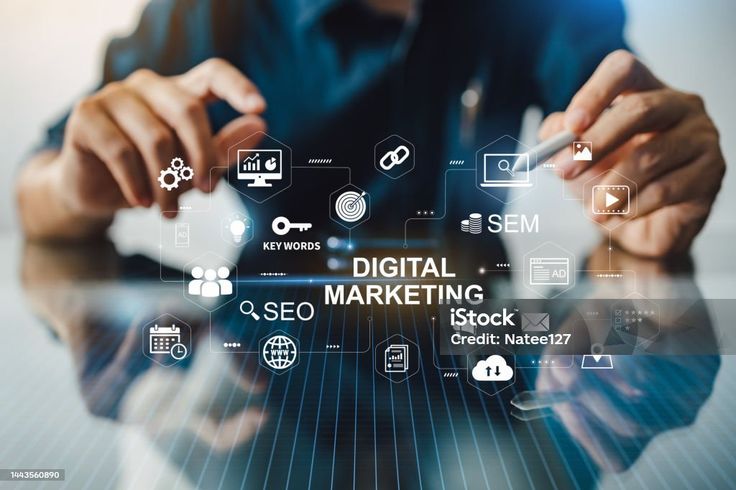
The world of marketing continues to transform at an unprecedented pace, especially as businesses enter 2025 with heightened digital demands. Companies are rethinking the way they communicate with their audiences, moving away from static strategies toward more personalized and dynamic campaigns. Consumers are not just buyers anymore; they are active participants who expect to be heard and engaged on a deeper level. This shift has created both opportunities and challenges for brands eager to stay relevant in an ever-changing environment. Digital platforms have become crowded, making it essential for organizations to refine their approaches to stand out. As a result, the modern marketing landscape requires both adaptability and foresight.
Brands in every industry are facing mounting pressure to not only embrace digital strategies but also master them. Audiences expect seamless experiences across multiple channels, whether browsing social media, searching online, or shopping through apps. Businesses that rely on outdated marketing tactics risk losing visibility in a marketplace where competition is only increasing. The landscape is also being shaped by advancements in artificial intelligence, consumer data analytics, and immersive technologies. While these innovations bring immense potential, they also demand careful navigation to avoid overwhelming or alienating customers. In 2025, the businesses that succeed will be those that balance creativity, technology, and authenticity.
The Evolution of Digital Strategies

Marketing strategies have evolved drastically over the past decade, driven by consumer preferences and technological advancements. What once relied heavily on print ads and television spots has shifted toward algorithm-driven social media campaigns, influencer partnerships, and search engine optimization. Companies no longer have the luxury of treating digital as an afterthought; it is now the centerpiece of their growth strategies. With consumers spending more time online than ever, businesses are expected to deliver compelling content at every stage of the customer journey. This requires a focus on precision targeting and messaging that feels personal, not generic. The companies that adapt quickly to this evolution are the ones most likely to thrive.
At the same time, marketing is no longer a one-size-fits-all endeavor. Businesses must analyze their audiences closely and deliver campaigns that speak to distinct demographics and preferences. Data-driven decision-making has become the backbone of successful campaigns, empowering marketers to fine-tune messaging based on real insights rather than assumptions. Personalization is now an expectation, not a bonus, and it significantly impacts brand loyalty and customer retention. As marketing continues to evolve, brands must stay agile and willing to test new ideas. The landscape in 2025 will reward creativity that is backed by measurable results.
The Role of Specialized Agencies

As digital marketing grows more complex, many businesses are turning to experts for guidance and execution. A digital marketing company in New York, for example, may bring not only technical expertise but also cultural insights unique to one of the most diverse and competitive markets in the world. Agencies like this provide tailored solutions that combine creativity with data-driven precision. They can manage everything from search engine optimization to paid media campaigns, freeing companies to focus on their core operations. By leveraging such partnerships, businesses are better equipped to navigate the complexities of today’s marketing environment. Agencies also help brands stay ahead of trends, ensuring they remain visible and relevant.
The need for specialized agencies is especially evident in industries where competition is fierce. Expertise in analytics, automation, and consumer behavior gives businesses the tools they need to deliver campaigns that resonate. Beyond technical knowledge, agencies often bring a fresh perspective that internal teams might overlook. This external viewpoint can uncover opportunities and identify challenges before they become problems. In addition, agencies often invest in cutting-edge tools and resources that individual companies may not have access to. By aligning with the right partner, businesses can maximize their reach and impact in an increasingly crowded digital space.
Industry-Specific Marketing Challenges

Different industries face unique challenges when it comes to digital marketing, and the food and beverage companies sector offers a clear example. This industry must manage a delicate balance between promoting indulgence and addressing health-conscious consumer demands. Visual appeal is a critical factor, with high-quality images and videos often determining whether customers engage or move on. Social media plays an outsized role in shaping opinions, as users frequently share meals and experiences online. With trends shifting rapidly, food and beverage brands must remain nimble in adapting to changing tastes and lifestyles. Standing out requires more than great products; it demands a compelling digital presence.
At the same time, these companies must consider issues of trust and transparency. Labels, sourcing practices, and nutritional information are increasingly scrutinized by savvy consumers. Digital platforms provide an opportunity to highlight these elements, but only if the messaging is consistent and clear. Building trust through storytelling, behind-the-scenes content, and customer testimonials can help brands differentiate themselves. Yet, the crowded marketplace means that mistakes or inconsistencies can quickly damage reputations. For industries like food and beverage, mastering digital marketing is both a necessity and a competitive advantage.
Building Stronger Partnerships for Growth

The complexity of the digital landscape has made collaboration more important than ever before. Many companies recognize that they cannot navigate these challenges alone, leading them to seek support from a trusted digital marketing agency. These partnerships often provide access to expertise, resources, and innovative ideas that internal teams may lack. Agencies bring valuable perspectives, informed by working with diverse industries and staying at the forefront of emerging trends. This collaboration allows businesses to scale more effectively and respond quickly to market changes. By sharing knowledge and resources, companies and agencies can create campaigns that deliver measurable impact.
Strong partnerships also foster creativity and innovation. Businesses that build collaborative relationships with agencies are more likely to take calculated risks and explore bold new ideas. Agencies can help test strategies in smaller markets, gather data, and refine approaches before scaling up. This minimizes risks while maximizing opportunities for success. In addition, partnerships often extend beyond campaigns, encompassing brand strategy, consumer engagement, and long-term growth planning. In 2025, collaboration will not just be an option but a cornerstone of sustainable digital marketing success.
To Sum Up

The digital marketing landscape in 2025 is complex, fast-paced, and full of both opportunities and challenges. Businesses must adapt quickly to shifting consumer expectations while leveraging technology in ways that enhance connection and trust. The importance of storytelling, transparency, and authenticity has never been greater, especially in a world where consumers demand meaningful interactions. Companies that embrace these principles will find themselves better equipped to thrive in an increasingly competitive marketplace. While no single strategy guarantees success, a commitment to continuous improvement and innovation will keep brands ahead of the curve. The key is balancing creativity with measurable results, ensuring campaigns resonate deeply with audiences.
As industries continue to evolve, the role of collaboration and expertise becomes increasingly vital. Agencies, technology, and data-driven insights provide the tools needed to navigate this dynamic landscape. Yet, success ultimately depends on a brand’s ability to connect with its audience in genuine and impactful ways. The businesses that will lead in 2025 are those that see marketing not just as promotion but as an opportunity to build lasting relationships. This requires both agility and vision, as well as a willingness to invest in innovation. By embracing these strategies, companies can confidently move forward in a digital world that shows no signs of slowing down.
- 3shares
- Facebook0
- Pinterest0
- Twitter3
- Reddit0



